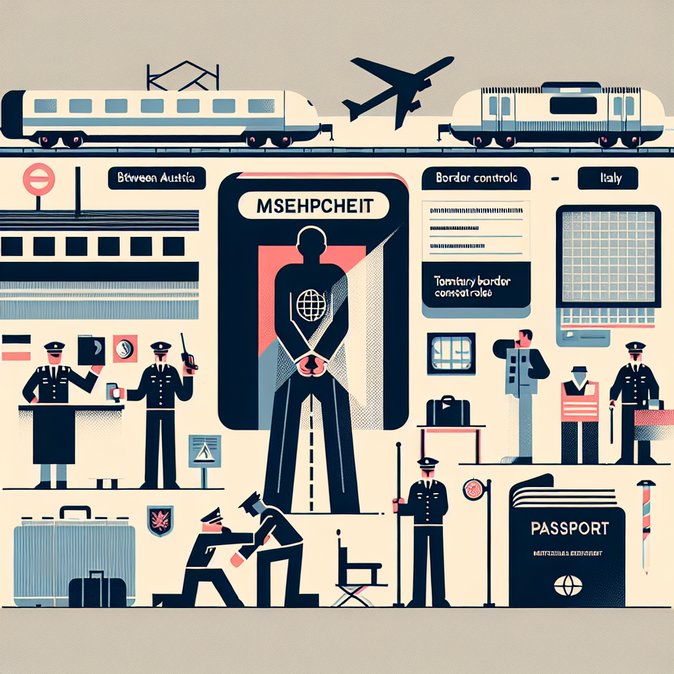
Frontier officers at Brennero station apprehended a 35-year-old Tunisian national wanted on a 6-year, 10-month prison sentence for serial burglaries, the Police HQ in Bolzano reported on 4 November. The man was spotted trying to evade patrols on a Munich–Verona EuroCity train during routine passport screening; he has been transferred to Bolzano prison.
Although the arrest itself is criminal news, the underlying story for mobility stakeholders is the persistence of internal-border controls that Austria and Italy re-instated in 2023 under Article 25 of the Schengen Code. Those controls—renewed most recently in October 2025—authorise identity checks on rail and road traffic to curb irregular migration along the so-called Brenner route.
![Border police at Brenner arrest fugitive during intensified Schengen checks, signalling ongoing controls on Italy–Austria corridor]()
For international assignees and corporate shuttle services crossing between Innsbruck and Verona the practical impact is extra dwell time: HR teams report train delays averaging 18 minutes since September. Carriers must ensure that non-EU passengers hold a valid passport and, where required, a Schengen visa even on purely intra-EU segments.
Legal advisers caution that employees overstaying Italian permits but travelling north risk immediate entry refusals at the Brenner, disrupting business-trip itineraries. Companies should audit mobility compliance before year-end travel peaks.
Politically, the incident feeds into Rome’s push for an EU-level ‘security clause’ that would let member states toggle internal controls more flexibly—an agenda item Italy plans to table at the JHA Council in December.
Although the arrest itself is criminal news, the underlying story for mobility stakeholders is the persistence of internal-border controls that Austria and Italy re-instated in 2023 under Article 25 of the Schengen Code. Those controls—renewed most recently in October 2025—authorise identity checks on rail and road traffic to curb irregular migration along the so-called Brenner route.

For international assignees and corporate shuttle services crossing between Innsbruck and Verona the practical impact is extra dwell time: HR teams report train delays averaging 18 minutes since September. Carriers must ensure that non-EU passengers hold a valid passport and, where required, a Schengen visa even on purely intra-EU segments.
Legal advisers caution that employees overstaying Italian permits but travelling north risk immediate entry refusals at the Brenner, disrupting business-trip itineraries. Companies should audit mobility compliance before year-end travel peaks.
Politically, the incident feeds into Rome’s push for an EU-level ‘security clause’ that would let member states toggle internal controls more flexibly—an agenda item Italy plans to table at the JHA Council in December.









